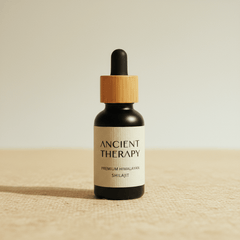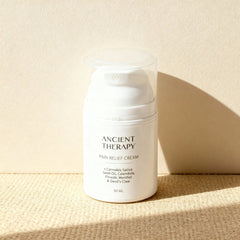The importance of good sleep quality
Good sleep quality is essential for overall health and well-being. During sleep, our bodies cycle through deep sleep and REM sleep, stages crucial for restoration and rejuvenation. Poor sleep quality can lead to fatigue, reduced concentration, and an increased risk of health conditions. Prioritizing sleep quality through natural solutions, such as supplementing with Ashwagandha, creating a relaxing environment, and establishing a consistent sleep schedule, enhances both rest and daily life quality.

The impact of poor sleep on overall well-being
Poor sleep significantly affects mood, cognitive function, and overall health. Chronic sleep deprivation weakens immunity and heightens risks for obesity, diabetes, and heart disease. Natural sleep aids, such as Shilajit Drops, may improve sleep quality, supporting better health and enhanced daily performance.
Establishing a consistent sleep schedule
Consistency in sleep schedules helps regulate your circadian rhythm, making it easier to fall asleep and wake naturally. By pairing a regular sleep routine with natural stress-relief supplements, you can enhance restorative sleep phases like REM and deep sleep, waking refreshed each morning.
Creating a sleep-friendly environment
Your bedroom should be a restful sanctuary. Keep it cool, dark, and quiet. Consider blackout curtains, white noise machines, or comfortable bedding. Incorporating relaxing scents like lavender or using products from our Skincare Collection can also promote relaxation and better sleep.
Tips for reducing stress and anxiety before bed
Reducing stress and anxiety is crucial for restful sleep. Incorporate relaxation techniques like deep breathing, meditation, or gentle yoga into your routine. Supplements such as Lion's Mane Mushroom can also naturally support a calmer mind, paving the way for peaceful nights.
The role of exercise in improving sleep quality
Regular physical activity positively influences sleep by balancing your internal clock and reducing stress. Exercise increases neurotransmitters like serotonin and endorphins, which promote relaxation. For added benefits, consider supplements from our Energy Boost Collection, complementing exercise routines for optimal sleep.
The effects of caffeine and alcohol on sleep
Caffeine and alcohol significantly disrupt sleep quality. Caffeine, a stimulant, can make it difficult to fall asleep, while alcohol disrupts sleep cycles, leading to fragmented rest. To manage sleep better, minimize intake of both substances and explore alternatives like calming herbal teas or supplements from our Adaptogens Collection.
The benefits of a bedtime routine
A bedtime routine signals to your body that it's time for sleep, promoting relaxation. Engage in soothing activities such as reading, meditation, or taking a warm bath. Pairing these routines with natural sleep aids like Tongkat Ali can further enhance sleep quality and overall well-being.
The connection between nutrition and sleep
Your diet significantly influences sleep quality. Foods high in tryptophan promote restful sleep, while caffeine and sugar can disrupt it. Eating heavy meals late at night can cause discomfort, impacting rest negatively. Integrate nutritious options and supplements from our Immune Support Collection to support healthier sleep patterns.
Seeking professional help for sleep issues
If sleep issues persist, consulting a sleep specialist or healthcare provider is beneficial. Professionals can diagnose sleep disorders and offer tailored treatments such as cognitive-behavioral therapy (CBT-I) or lifestyle modifications. Complement these professional insights with effective holistic solutions found in our Popular Wellness Collection to achieve restful nights consistently.






Leave a comment